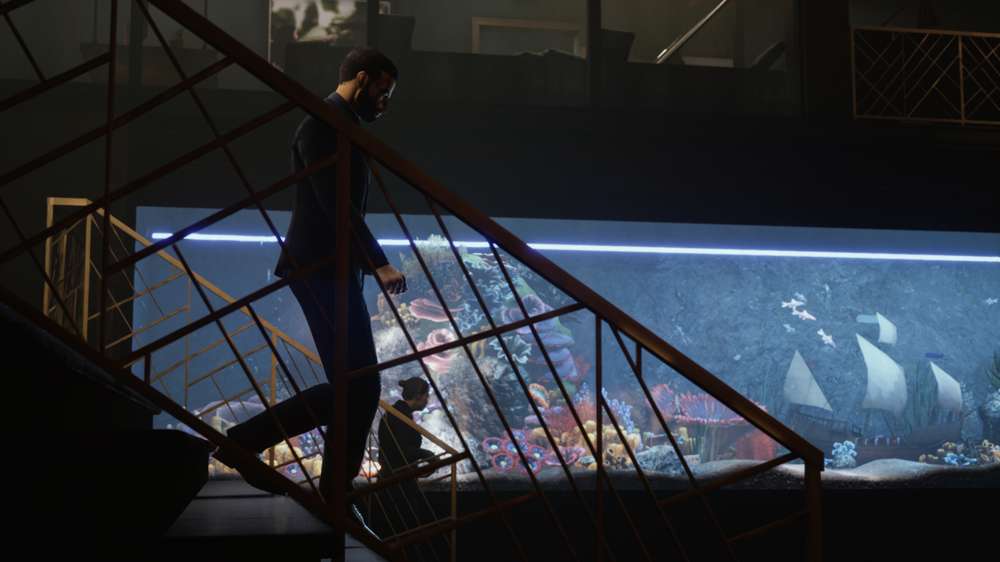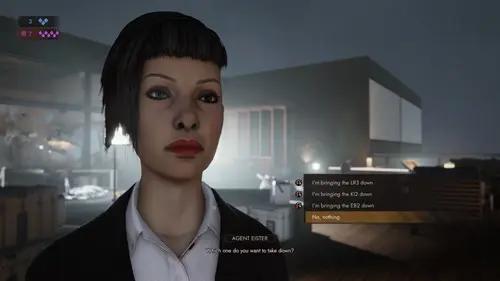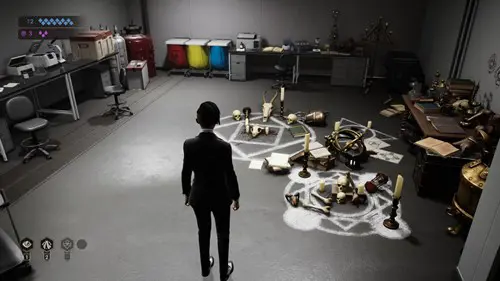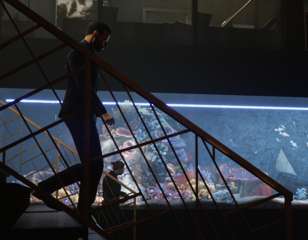Vampire: The Masquerade - Swansong Review: “Lacks The Polish Needed To Be A True Great”
Vampire: The Masquerade Swansong invites players to walk through the dark alleys where power is disputed and danger comes from everywhere. Does VTM Swansong is capable to deal with players expectations?

Well-established franchises with brand new iterations or spin-offs that try something new always face a huge challenge of living up to expectations. The World of Darkness has seen plenty of entries in the past, but Vampire: The Masquerade - Swansong is all about your choices and how they impact this city full of bloodthirsty, unassuming citizens. It's easy to come into this with pre-conceived notions about how Swansong will play based on other games in the franchise, but you can expect a significantly different experience full of mysteries, albeit sometimes lacking the polish needed to be a true great.
Slowly Walking The Path Of The Night

Instead of taking a slow approach at the start, Swansong holds nothing back and puts the player slap-bang in the middle of Code Red, a call for all the vampires in the city to hide due to the fact that an important reunion had become a massacre. Because of that, a sect of vampires called The Camarilla thinks the Masquerade is at risk of being discovered by humans. Three vampires are called by the Prince to investigate what happened and help maintain the Masquerade at all costs: Emem, Leysha, and Galeb, the three trio of playable vampires that take centre stage throughout Swansong. Having different reasons to answer the Prince’s call, the characters approach the situation from different angles, coming up with questions accordingly to how they perceive what is happening as well as how it affects their position inside the vampire society.
Swansong is not an action game like Bloodhunt, the recently launched battle royale in the same universe. Instead, it's based on mystery and investigative mechanics. Influence, knowledge, and wit are some of the weapons players have at their disposal, while the powers are tools to hide their presence in order to listen to important conversations, infiltrate rooms, and convince humans that they should tell you the password for the safe you need to open.
The whole "vampires sucking blood" thing happens as part of the Hunger, which is one of the core mechanics. Each character has skills inherited from their clans and they can be used in dialogues to help players in their missions, however, these skills generate Hunger which can be measured by the gauge display on the screen. If the Hunger stays at its limit, the vampires might lose control and indiscriminately attack mortals.
By choosing to orient the game toward a more slow-paced format, Swansong brings an experience relatable to those who also played the tabletop version of the game. It's not focused on combat or min-maxing a character's build, instead focusing on the finer details in the relationship between these mythological beings that want to exist in the modern world and the dispute for power in society. More weight is given to the story and to what each character does in terms of progressing the narrative, making the player feel they have a role in it instead of only creating a power fantasy experience.
The Secrets Of A Secret Society

Since the investigation has no fights or shootings, the gameplay experience is based on talking to other characters, exploring different possibilities of dialogues, and solving puzzles to progress the story. Even though talking may not sound too exciting, players will find themselves trying to win arguments using skills or having to choose one option of dialogue in a short period of time.
Although it is not an innovative technique, relying on the character’s stats and skills to progress one chain of dialogue brings the feelings of tabletop RPGs that some players may be looking for. On the other hand, this type of pressure is only effective when the player feels at least a little engaged to be concerned about the outcome. There may often be times when you know the argument doesn't disrupt the main quest, so failing it has no consequence.
When players are not dealing with dialogues, they will be trying to solve puzzles. These are present in the game in different forms, from finding hints of how to open a secret compartment to planting sketchy files in a safe so a certain character will accept the offer of working with you. To players experienced with puzzles from the late 90s, a feeling of nostalgia might come up when they realize the sequence books should be pushed to open a hidden door or due to all the backtracking involved in completing some challenges.
Swansong encourages exploration by leaving tips on how to solve puzzles scattered all over the place, such as pieces of paper, sounds, and images. Not only that, but the game rewards players that pay attention and read everything carefully, hiding information from anyone who is just scanning the text to spot the information they need. This means you feel a serious sense of accomplishment when you find the answer you need, because nothing is handed to you on a plate. With this in mind, exploring those huge areas can become a pain if you encounter any bugs, like one that prevented me from being able to run anywhere.
This lack of hand-holding can become quite frustrating when you're really bashing your head against a wall trying to get through a puzzle though. There's little indication to whether you're even on the right path, which is a serious lack of communication between the game and the player, despite this channelling puzzle and adventure games of old. If you're only interested in completing the main quest and forgoing any of the side objectives, you may be laden with items that aren't relevant and that make it difficult to work out why it's important.
One occasion that truly stumped me was trying to escape a prison-like area, but the puzzle had me scratching my head for two hours. When I eventually sussed it out, there didn't seem to be too much logic behind the solution, nor was I sure exactly what I triggered to progress.
A Believable World For Mythological Creatures

Boston is the backdrop for this tale of mystery and intrigue, and Swansong does an excellent job in making this vampire network concealed from humans seem plausible. From a vampire that works as a gatekeeper to live the nightlife and "cook" questionable types of food during the night shift to a group of vampire-hackers, the writing uses aspects of the real world to make Swansong quite feasible and immersive.
The various environments are effective in creating the right urban, vampire-esque atmosphere too. Fancy buildings covered with clean black marble walls, secret facilities where experiments are made right beside a room filled with old books and equipment to hunt vampires, and large red saloons in hidden bars were created for vampires to socialize. This is, unfortunately, a stark contrast to the physical features and animations on certain characters. They do the job, but often facial expressions won't do the mood of the scene justice, seeming more like lifeless robots.
Vampire: The Masquerade: Swansong makes choices and concessions that are necessary to deal with the expectations. It does a great job bringing the atmosphere and the aesthetic that one would expect from a World of Darkness title, based on previous games or sessions of the TTRPG. On the other hand, it works as an investigative game for players who are new to the series. Even so, it falls short in some areas, like some obtuse puzzles and bland characters incapable of expressing themselves. At the same time, these aspects only make the existence of a sequel or even a series of mystery games in the Vampire: The Masquerade world more exciting.
3.5/5
Reviewed on PC. Code provided by the publisher.
Comments
More Like This
Vampire: The Masquerade - Swansong Review: “Lacks The Polish Needed To Be A True Great”
Vampire: The Masquerade Swansong invites players to walk through the dark alleys where power is disputed and danger comes from everywhere. Does VTM Swansong is capable to deal with players expectations?
162 weeks ago

